The unique sweet and savory flavor of basil leaves, with hints of anise, licorice, mint, and pepper, is hard to replace. If your recipe calls for basil you don't have, substitute it with oregano, cilantro, tarragon, or Italian seasoning.
Table of Contents
Basil: flavor profile and common uses
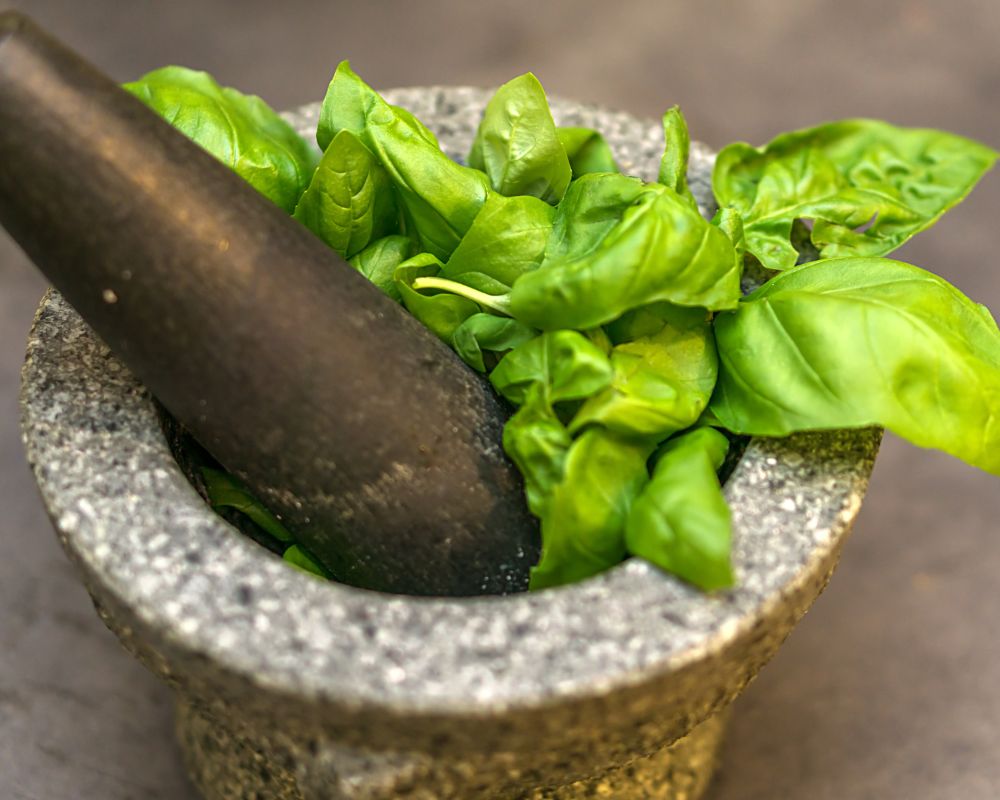
Basil is a popular herb from the mint family that carries sweet and savory flavors with notes of pepper, mint, anise, and even licorice. Basil leaves are usually leafy greens, but other varieties of basil have different colors.
Among the over 150 basil varieties, sweet basil is ubiquitously used in many Mediterranean and Italian recipes. Fresh and subtly sweet, it goes well with tomato-based pasta dishes and pizzas that rely on tomato sauce.
Along with olive oil, parmesan cheese, and pine nuts, it’s also the key ingredient in traditional pesto.
Beyond pasta and pizza, other recipes that use basil include:
- Tomato and basil bruschetta
- Tomato and basil soup
- Lobster ravioli
- Cucumber, basil, and tomato salad
- Caprese salad
- Cucumber-basil cocktail
- Strawberry basil sorbet
Basil can be used fresh or dried. The common fresh basil has a vibrant green color and is soft, while the dried one is much darker and crisp.
Additionally, the former embodies basil’s good balance between savory and sweet, while the latter has a deeper flavor, substantially elevated minty notes, and mellowed anise-like traits.
Is basil hard to substitute?
Basil can be quite hard to replace in a recipe. For instance, if you’re prepping up Caprese salad, using any other garnish won’t yield the exact same flavor.
What to use when you don’t have fresh basil around?
Fresh herbs add a refreshing aroma and flavor to a variety of dishes. Here are our top fresh basil substitute recommendations.
- Fresh oregano
- Spinach
- Mint
- Cilantro
1. Fresh Oregano
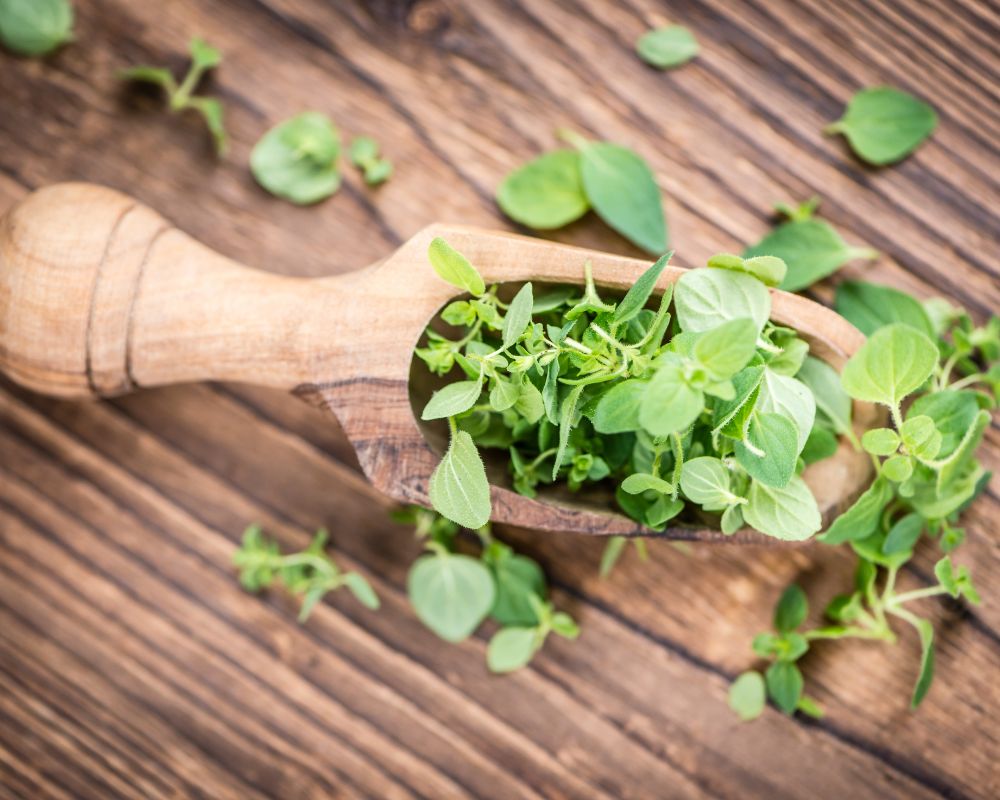
Oregano is the best basil substitute (and great sage substitute) because it offers a similar flavor profile, strength — and color. If you’re cooking pasta sauces and casseroles, replace fresh basil with fresh oregano using a 1:1 ratio.
2. Spinach

Though spinach leaves come with mild flavors, they can give you basil-like color and texture. They’re best used as a basil alternative for stir-fries (1:1 ratio). If you still don’t have spinach, consider arugula.
3. Mint

Mint is more bitter and minty than basil. If you’re out of fresh basil leaves to top your ice cream, mint is your ideal replacement. It is also suitable for some sauces. Use the same amount of replacement mint as the amount of basil in the recipe.
4. Cilantro
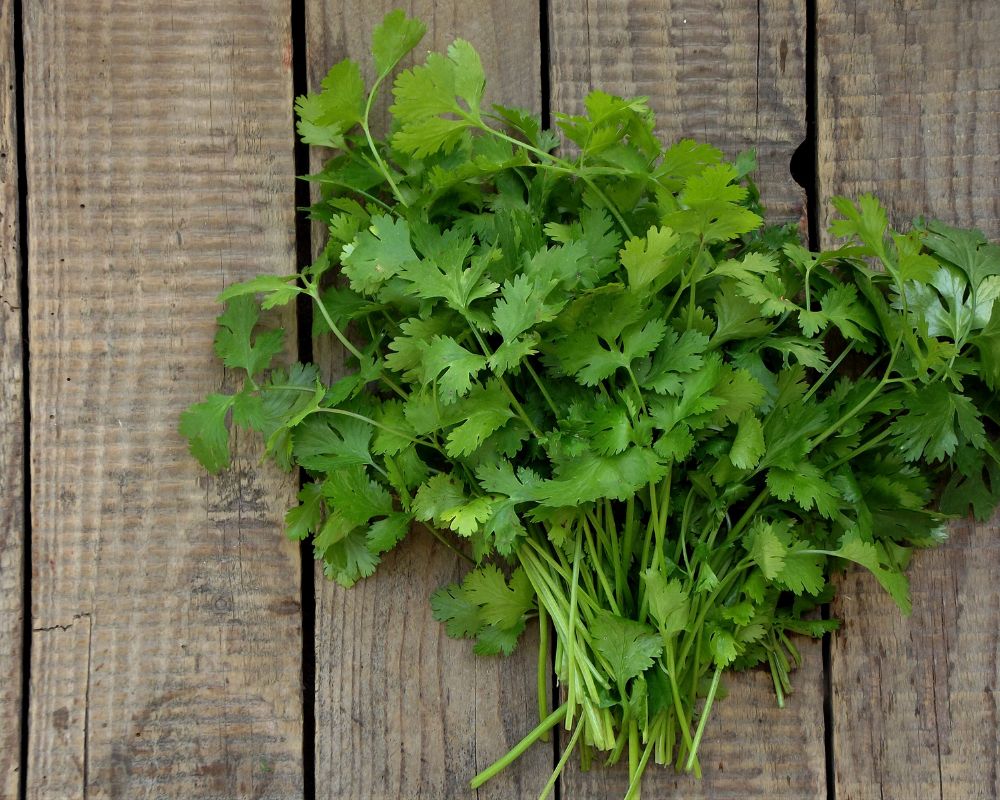
Some say it tastes like soap, but its actual flavor profile is a mixture of mint, pepper, and lemon. If you’re looking for a good substitute for basil in Mexican and Asian dishes like taco sauces and curries, cilantro is worth considering. As with other substitutes, use equal amounts.
What are the best dried basil substitutes?
Dried herbs bring a deep flavor and aroma to dishes. Here’s a list of great substitute options for dry basil.
- Fresh basil
- Dried oregano
- Italian seasoning
- Tarragon
1. Fresh basil
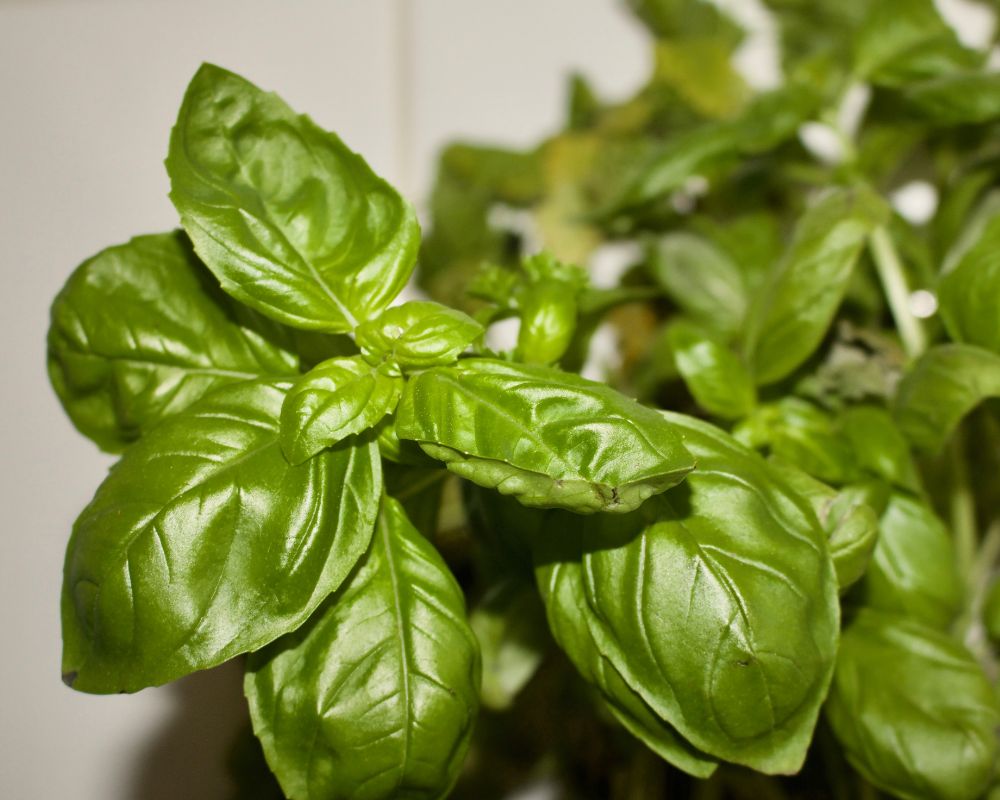
Since dried basil has a denser flavor than fresh basil, the ratio to follow is 1:3. If the recipe calls for 1 teaspoon of dried basil, use 3 teaspoons or 1 tablespoon of a fresh one.
2. Dried Oregano
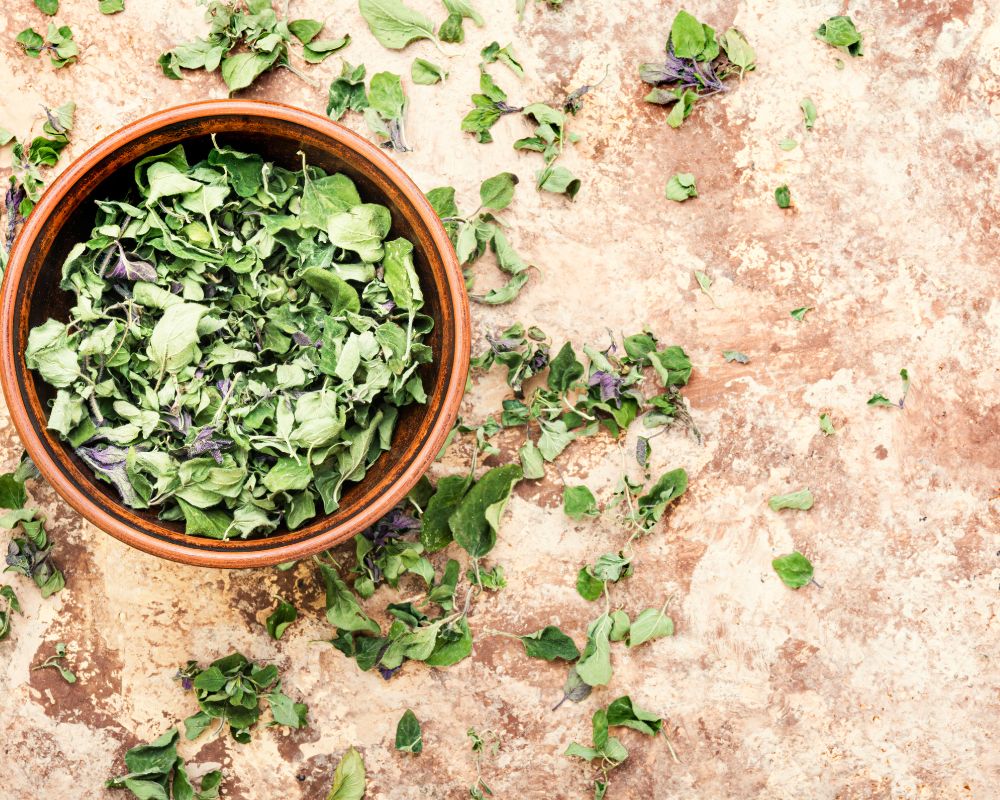
Another great dried basil replacement is oregano in dried form. Use a 1:1 ratio. Oregano’s peppery taste makes it an interesting addition to hearty dishes with root vegetables and red meat.
3. Italian seasoning
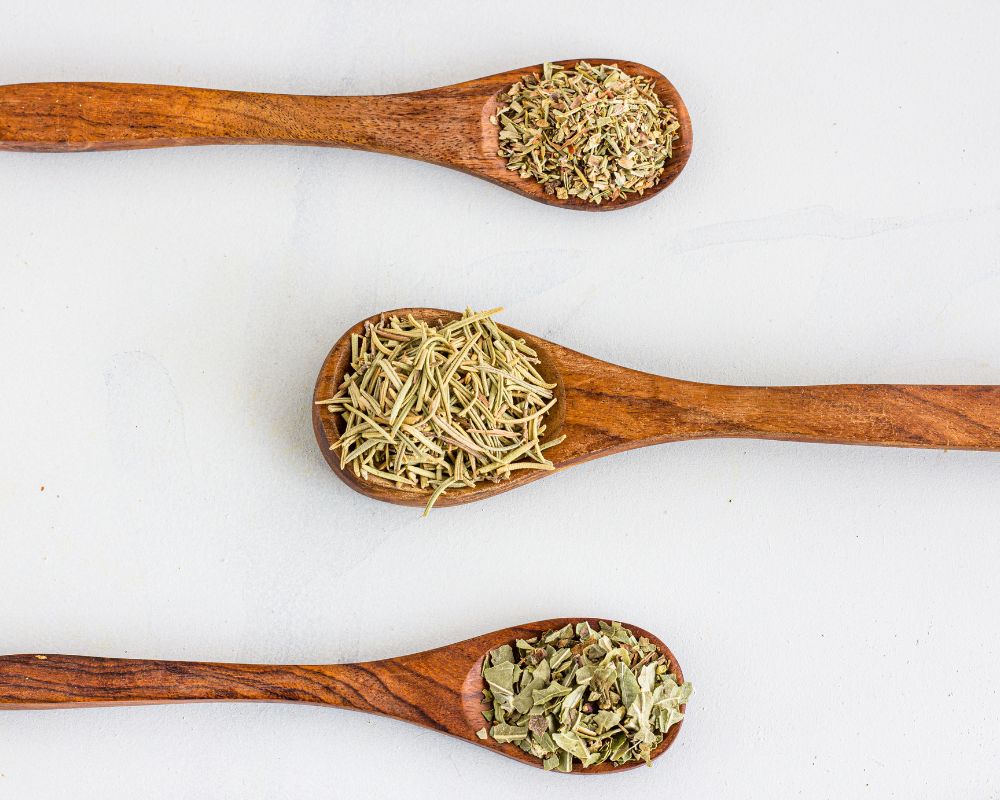
Italian seasoning blends the common spices used in Italian dishes (including basil). If you’re preparing some Italian dish, but have no dried basil, swap 1 teaspoon of it with ½ teaspoon of this spice blend.
4. Tarragon
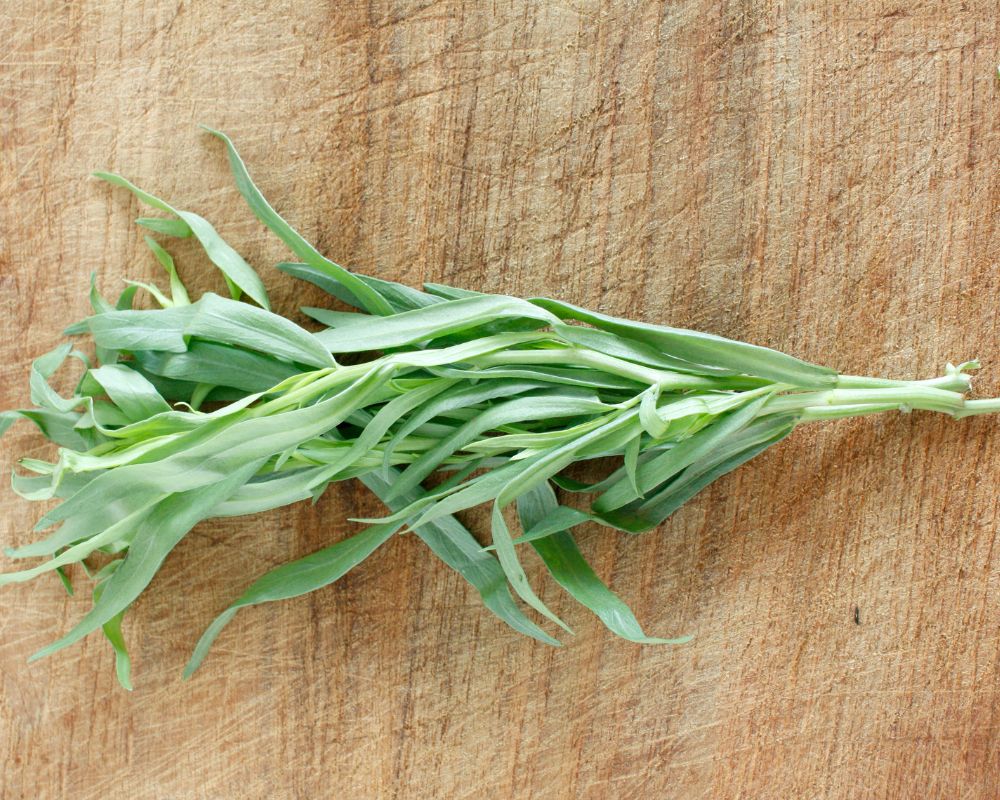
Tarragon has peppery notes and works well with dishes with white sauces. If you want to use it in place of basil (following a 1:1 ratio), use it in chicken and fish dishes with white sauces, such as pan-seared cod with lemon-basil cream sauce.
6 basil alternatives to consider
Here are six more basil alternatives — commonly found in kitchens — that you may want to explore.
- Thyme
- Celery leaf
- Coriander
- Sorrel
- Marjoram
- Lemon balm
1. Thyme
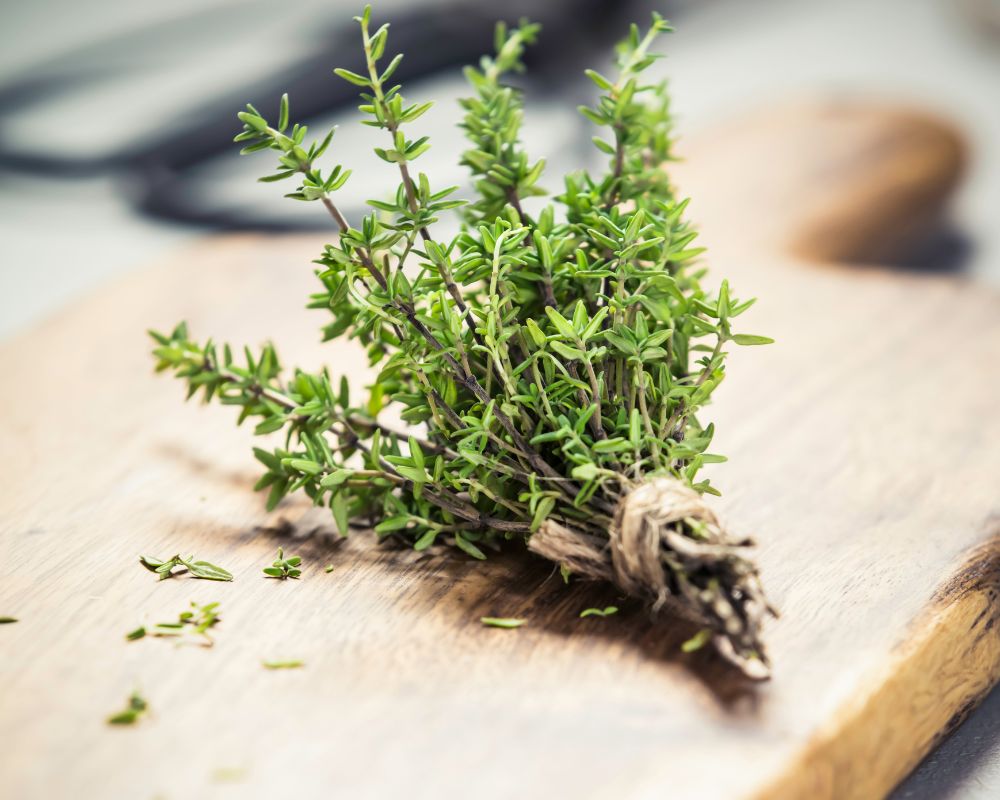
Thyme is much like oregano but with a less peppery taste. It also has lemony notes, but not as much as lemon zest. Use ½ the amount of fresh or dried thyme as a substitute for fresh or dried basil. The ideal recipes are those with red meat or red sauces.
2. Celery leaf
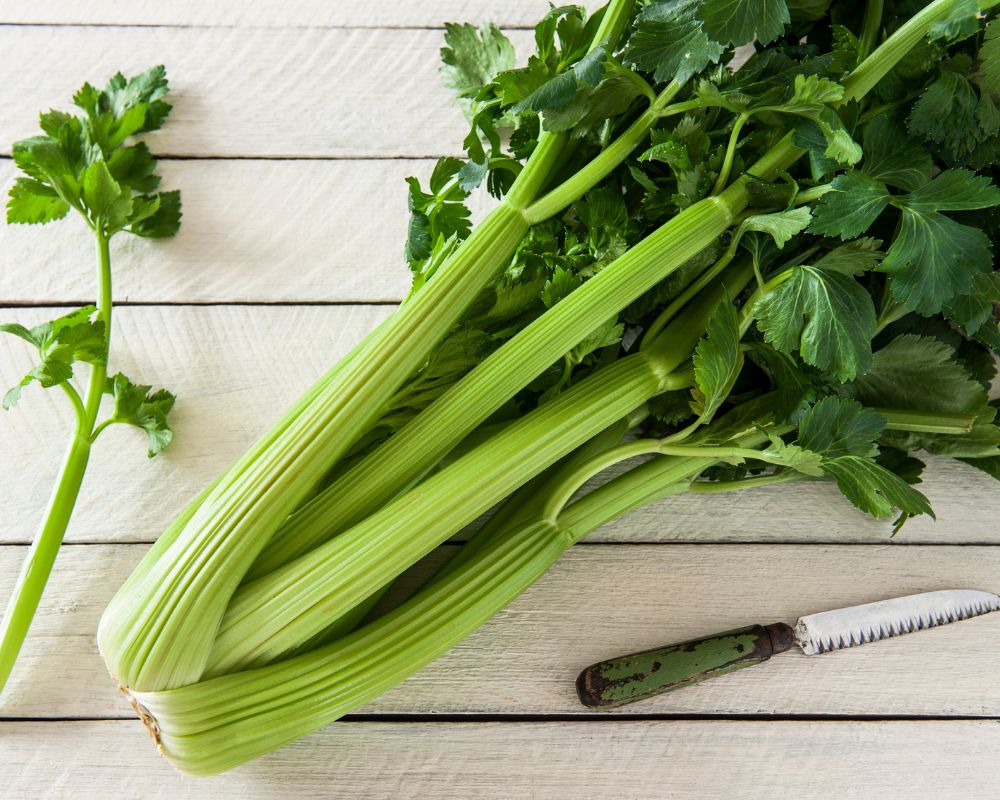
Celery leaves’ mild earthy notes make them a good substitute for Mediterranean cuisine that needs fresh basil. If you have celery at home, chop them and use equal amounts as the basil stated in the recipe.
3. Coriander
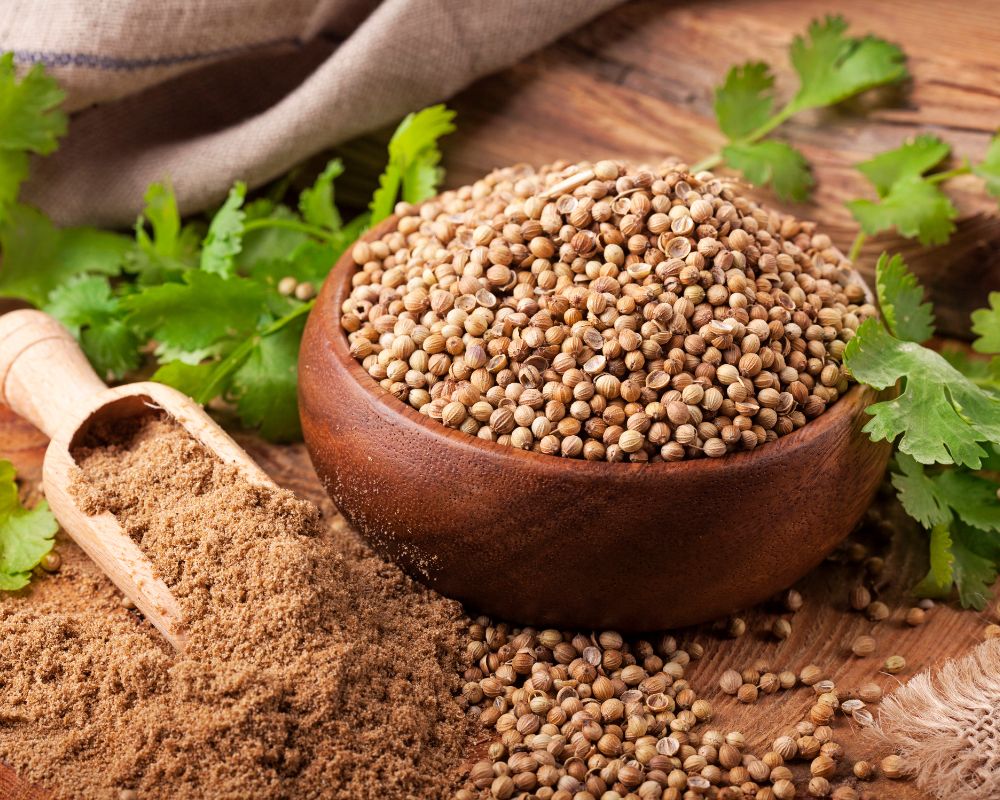
Coriander and cilantro come from the same plant. The former refers to the dried seeds, while the latter refers to the leaves and stems. Coriander has floral flavors — with hints of citrus, curry, and sweetness. Following a 1:1 ratio, use it for curries, stir-fries, rice, stews, and soups.
4. Sorrel
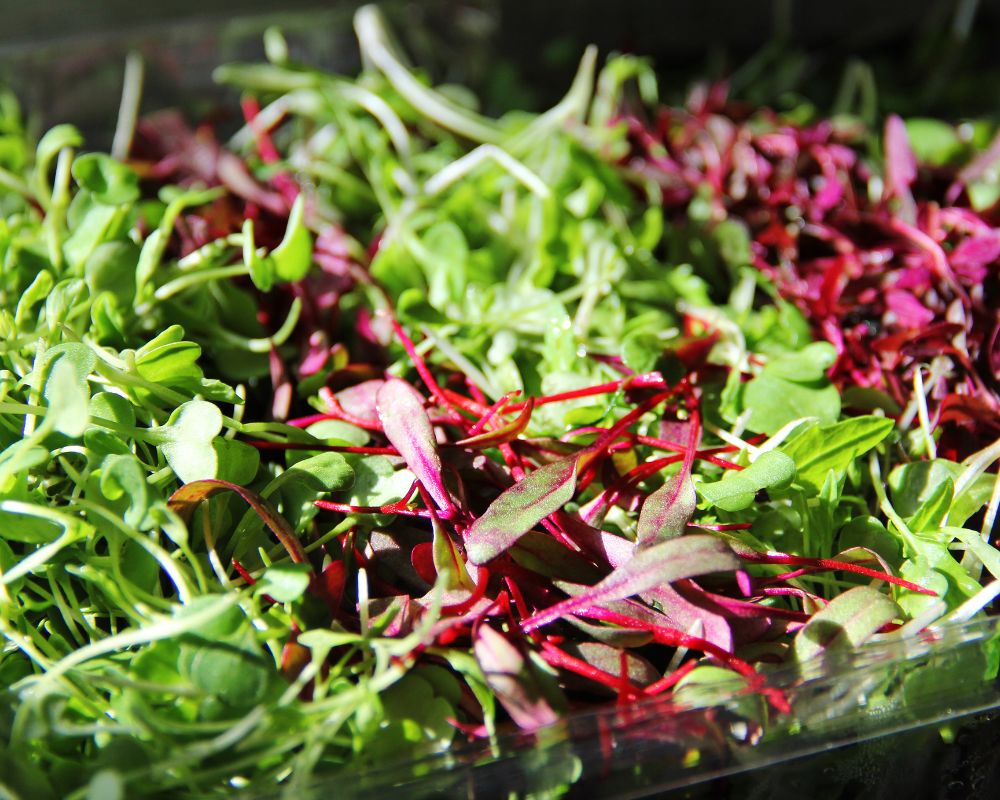
With its lemon and spinach-like flavor, sorrel can replace basil in pesto dishes. But as it has a strong flavor, use only half the sorrel to dial it down.
5. Marjoram
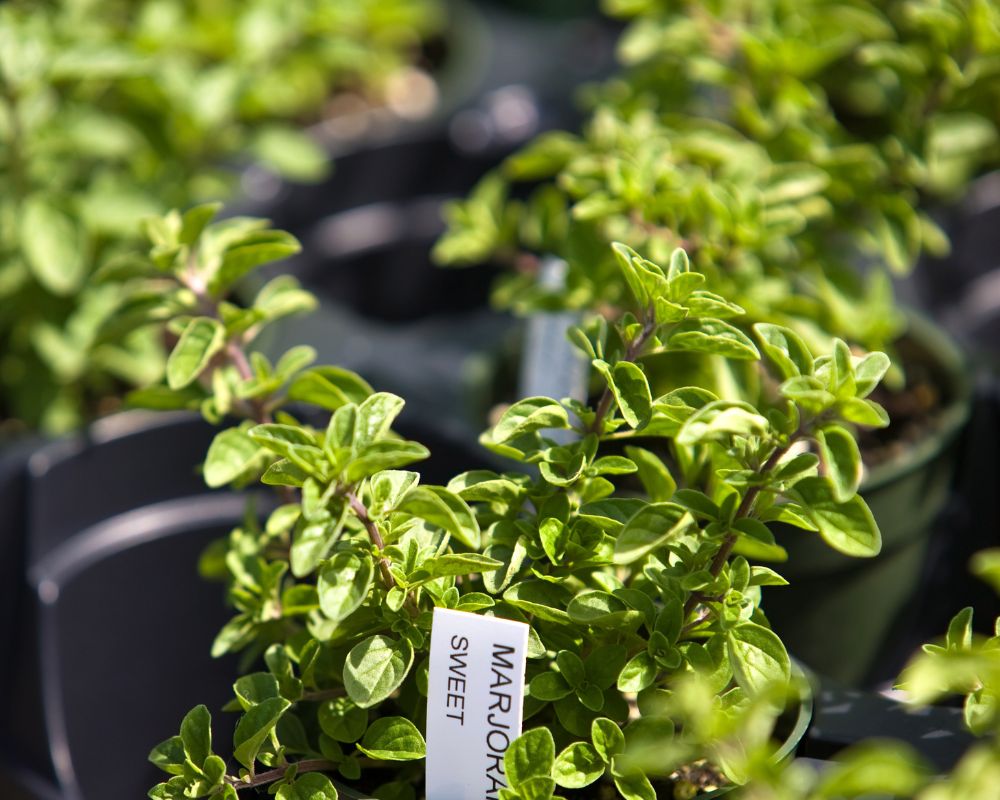
Marjoram is also a member of the mint family but has woodsy and citrusy notes. It also has hints of sweetness and pine. Using a 1:1 ratio, use it to replace basil in a salad, meat, and fish dishes. You can also use it when making bruschetta.
6. Lemon balm

Lemon balm has a bright, citrusy flavor with hints of mint. It’s suitable for dishes that pop when infused with citrusy notes. These include fish dishes, salads, and even poultry. Use it in a 1:1 ratio.
The final list of all basil substitutes
| Fresh oregano | Has similar flavor profile, great for pasta sauces and casseroles |
| Spinach | Provide basil-like color and texture, used for stir-fries |
| Mint | Bitter and minty, ideal for sauces |
| Cilantro | Tastes like mint, pepper, and lemon, good replacement in Mexican and Asian dishes |
| Fresh basil | Less dense than dried basil, ideal for dishes that need herbs |
| Dried oregano | Has peppery taste, great for dishes with root vegetables and red meat |
| Italian seasoning | Spice mix similar to basil, used in Italian dishes |
| Tarragon | Has peppery notes, works well with dishes with white sauces |
| Thyme | Similar to oregano, good for red meat or red sauces |
| Celery leaf | Has mild earthy notes, used in Mediterranean cuisine |
| Coriander | Comes with has floral flavors, perfect for for curries, stir-fries, rice, stews, and soups |
| Sorrel | Has spinach-like flavor, common basil replacement in pesto dishes |
| Marjoram | Has woodsy and citrusy flavors, good for salad, meat, and fish dishes |
| Lemon balm | Has bright, citrusy flavor with hints of mint, great in fish dishes and salads |
What about Thai basil?
The purple-stemmed and perennial Thai basil has a more prominent anise flavor. It has a licorice-like gastronomic appeal and offers more spice — as opposed to the sweet flavor of basil, more commonly used in Italian and Mediterranean dishes.
Because of its spicy flavor profile, it is used to jazz up many Asian dishes, including Thai basil chicken, pad thai, and Vietnamese pho.
Can I Use Tulsi Instead of Thai Basil?
Tulsi and Thai basil belong to different basil species and have vastly different flavor profiles, so you can hardly use one instead another. Tulsi’s bitter and pepper notes are absent in Thai basil, and Thai basil’s licorice and anise flavors can’t be found in Tulsi.
Holy basil, also known as tulsi, has a bitter and peppery flavor and is commonly found in recipes for Indian dishes.

